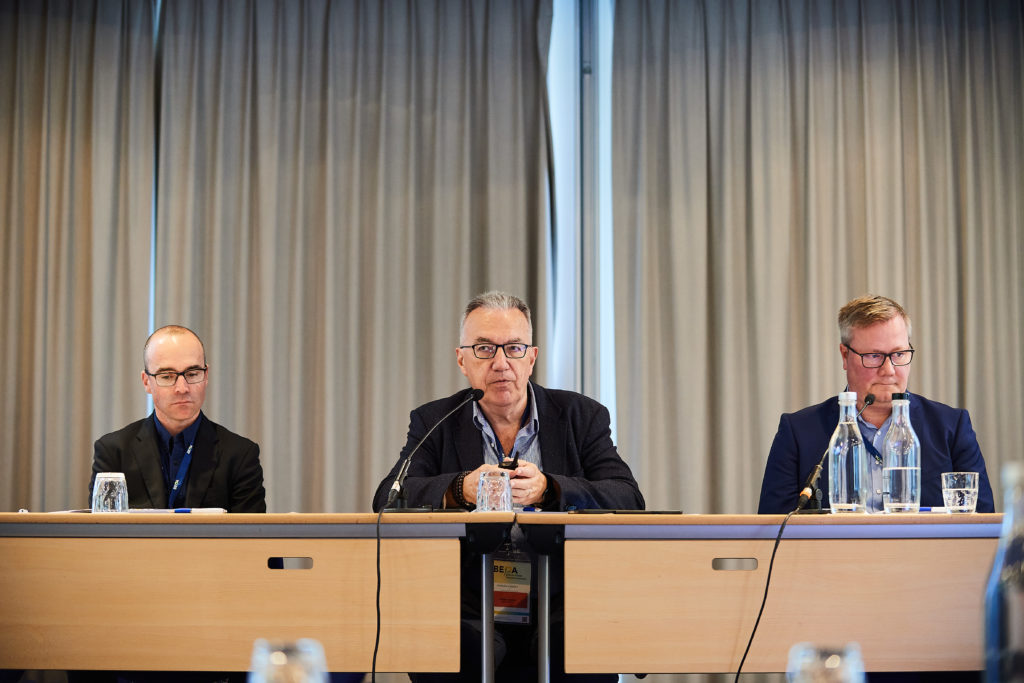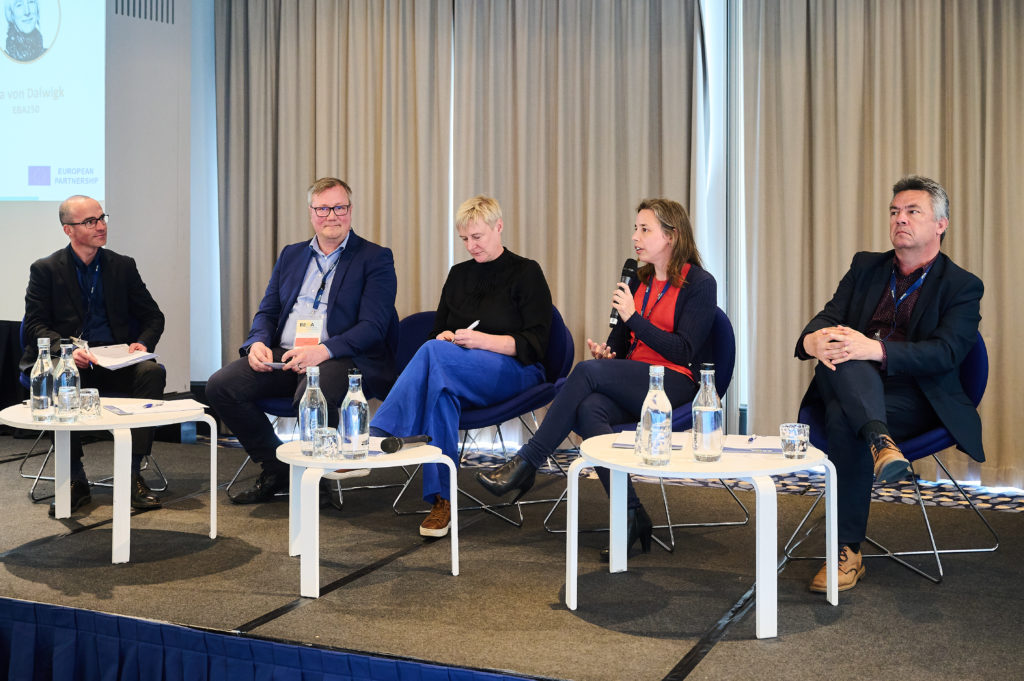BEPA’s 6th General Assembly: 14 new members, 70 proposals for 17 battery projects with a budget of 77million EUR
30 May 2023

BEPA was proud to organise its 6th General Assembly on Tuesday 16 May 2023 and to present in the afternoon of the same day a workshop on ‘European Competitiveness’

BEPA sixth General Assembly of the Batteries European Partnership Association took place on Tuesday 16 May 2023, in a hybrid gathering held in Brussels and online. Over 148 participants attended the event, including 75 online attendees while 73 people seized the opportunity to meet face-to-face at the Brussels Renaissance Hotel.
During the meeting, the BEPA members voted in favour of welcoming 14 new members into the association. Also, members voted on the open Executive Board position for the raw material sector and for the Association Delegation position for the other applications sector. Congratulations to Madeleine Scheidema and Belén Neira for being elected for these roles.
Following the welcoming remarks from BEPA President Michael Lippert, Secretary General Phillippe Jacques and other members of the BEPA Executive Board provided some updates on BEPA’s activities in 2023, the battery calls have proven their popularity with 70 proposals submitted for only 17 expected battery projects, which will see around 77 million EUR from the Horizon Europe budget being earmarked for battery R&I. Other highlights included the changes of the ’24 work programme, with the topic on material acceleration platform for sustainable batteries being reintroduced and the virtual testing of battery aging topic being postponed to ’25. The next steps of the BATT4EU’s strategic research and innovation agenda (SRIA) were also presented by giving an the overview of the timeline and agenda of developing the document. BEPA is in charge of coordination of the joint working groups for defining the strategic research topics and their prioritization in later steps. The work on SRIA will be finalised in September 2021, and will be followed by drafting the Horizon Europe Work Programme in fall.

Seeing the expressed interest of BEPA members to have more networking events in person, better links with other Horizon Europe Partnerships and workshops with national and regional clusters, Philippe Jacques presented the actions taken by BEPA. Among those mentioned was the organization of an additional day attached to the Battery Innovation Days, which will take place on 16 November to discuss innovation uptake, will include a matchmaking event and a clustering event in collaboration with Bettery2030+. BEPA has already set a date for a joint workshop with nominated experts from the Europe Rail JU and with the Zero-Emission Waterborne Transport to align research targets. Additional events are planned to create new partnerships and initiatives among them; a meeting with the national and regional coordination group to set up a structure that will allow for more continuous and meaningful exchange between initiatives on EU and member state level.
The GA was followed by a workshop on ‘European Competitiveness’ with a presentation from Andrea Casas Ocampo from CiC Energigune who provided an overview of the global changes in the battery landscape, in her words “countries are on a ‘race’ for the development of technologies such as batteries”. Jesse Terry from BEPA presented the Green Industrial Plan and other European measures to address the European supply chain vulnerabilities in the battery landscape, and measures to build up a stronger European industrial base.

The presentations were followed by two panels assessing the state of European battery competitiveness in light of the global wave of public incentives such as the Inflation Reduction Act. The first panel focused on the needs of the European battery industry sector, in such a rapidly growing sector, the industrial and innovation policies come to be indistinguishable sometimes, and constant dialogue between the many industrial, research and political stakeholders is for us the key to, as Kurt Vandeputte, Umicore puts it, outsmarting our way out of the hurdles. And we at BEPA – Batteries European Partnership Association will keep providing that platform for our members.

The second panel discussion focused on how R&I can keep the European battery value chain competitive, the panellists focused on the potential impact of the trend on the R&I ecosystem, and the mechanisms that innovation policies of the EU can keep the industry still thriving. Role of the Horizon Europe in stimulating competition in battery sector, demands of automotive sector from the battery community, and the importance of training skilled workforce were among the other discussed issues.

